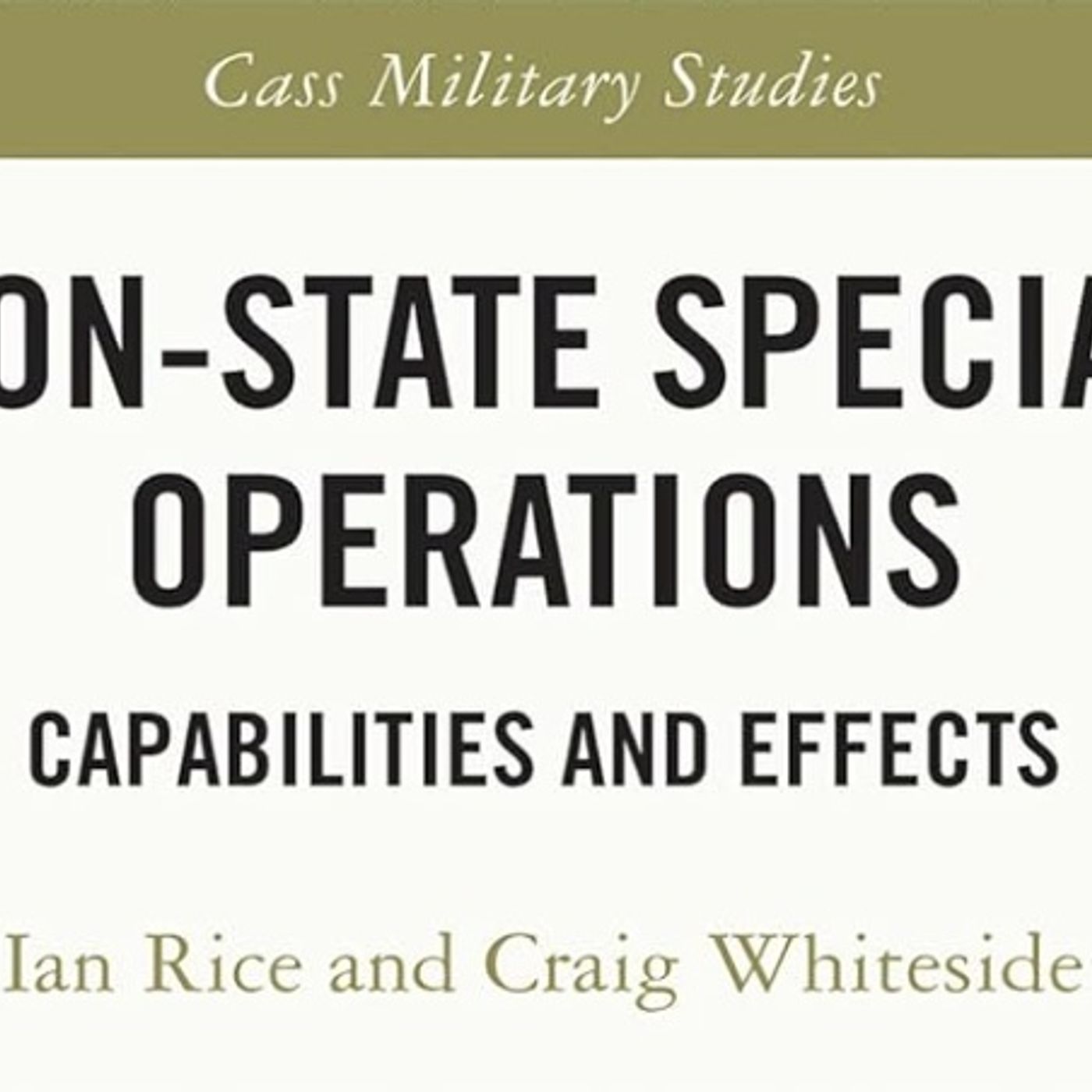Episode 728: Non-State Special Operations, with Craig Whiteside and Ian Rice
- Author
- Midrats
- Published
- Mon 21 Jul 2025
- Episode Link
- https://www.spreaker.com/episode/episode-728-non-state-special-operations-with-craig-whiteside-and-ian-rice--67050979
On today’s Midrats, we have returning guest Craig Whiteside and his co-author Ian C. Rice joining us to discuss one of the nightmares we all have in the new book coming out this month. He co-authored it with Ian Rice, Non-state Special Operations: Capabilities and Effects.
From the abstract:
Building on previous research on Islamic State special operations, the book develops a theoretical framework surrounding a typology of VNSA (militants, proxies, criminal/cults, and mercenaries) to explore variations of non-state special operations, with multiple cases for each category of actor. Understanding when and why VNSA use special operations provides insights into the inner workings of such groups and how they campaign, and also has implications for the proliferation of special operation forces around the globe and its influence on non-state behaviour. This volume contributes to research on the recent trend of non-state actors surprising, and in some cases humiliating, their state opponents.
Craig is Professor of National Security Affairs at the US Naval War College resident program at the Naval Postgraduate School, Monterey, California. He is the co-author of The ISIS Reader: Milestone Texts of the Islamic State Movement (2020). He has a PhD in Political Science from Washington State University and is a former U.S. Army infantry officer.
His coauthor Ian is an adjunct Senior Lecturer in the Department of Defense Analysis, Naval Postgraduate School, adjunct faculty member with the College of Distance Education, USMC University, and a guest lecturer with the Royal Danish Defence College. He is a retired U.S. Army officer who served with special operations forces.
Show Links
Summary
In this episode of Midrats, hosts discuss the complexities of non-state special operations with authors Craig Whiteside and Ian Rice. They delve into the historical context, defining characteristics, and implications of special operations conducted by non-state actors. The conversation highlights the importance of understanding the motivations and strategies of these actors, as well as the challenges they pose to state actors. The authors share insights from their new book, exploring the evolution of non-state operations and the need for a nuanced approach to countering them.
Takeaways
From the abstract:
Building on previous research on Islamic State special operations, the book develops a theoretical framework surrounding a typology of VNSA (militants, proxies, criminal/cults, and mercenaries) to explore variations of non-state special operations, with multiple cases for each category of actor. Understanding when and why VNSA use special operations provides insights into the inner workings of such groups and how they campaign, and also has implications for the proliferation of special operation forces around the globe and its influence on non-state behaviour. This volume contributes to research on the recent trend of non-state actors surprising, and in some cases humiliating, their state opponents.
Craig is Professor of National Security Affairs at the US Naval War College resident program at the Naval Postgraduate School, Monterey, California. He is the co-author of The ISIS Reader: Milestone Texts of the Islamic State Movement (2020). He has a PhD in Political Science from Washington State University and is a former U.S. Army infantry officer.
His coauthor Ian is an adjunct Senior Lecturer in the Department of Defense Analysis, Naval Postgraduate School, adjunct faculty member with the College of Distance Education, USMC University, and a guest lecturer with the Royal Danish Defence College. He is a retired U.S. Army officer who served with special operations forces.
Show Links
- Non-state Special Operations: Capabilities and Effects, by Craig Whiteside and Ian Rice.
- Operation Chariot
- Defeat Into Victory: Battling Japan in Burma and India, 1942-1945, Field-Marshal Viscount William Slim
Summary
In this episode of Midrats, hosts discuss the complexities of non-state special operations with authors Craig Whiteside and Ian Rice. They delve into the historical context, defining characteristics, and implications of special operations conducted by non-state actors. The conversation highlights the importance of understanding the motivations and strategies of these actors, as well as the challenges they pose to state actors. The authors share insights from their new book, exploring the evolution of non-state operations and the need for a nuanced approach to countering them.
Takeaways
- Special operations are defined as tactical actions designed to achieve outsized effects.
- Historical examples illustrate the long-standing use of special operations by non-state actors.
- Understanding the typology of non-state actors is crucial for effective analysis and response.
- Prison breakouts are a common tactic used by non-state actors to regain manpower.
- Cults and criminal groups can also engage in special operations, often driven by self-interest.
- Not all terrorist acts qualify as special...
